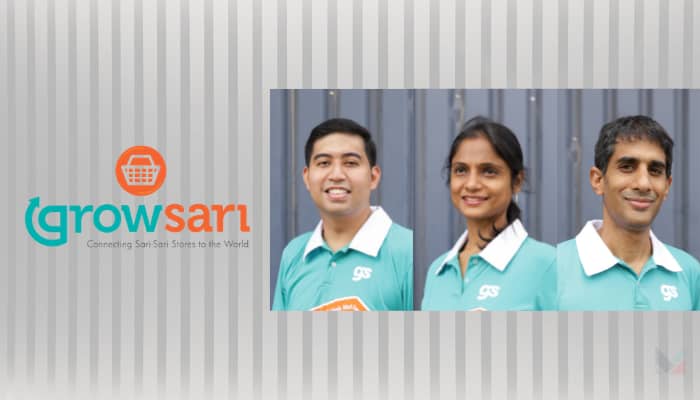Manila, Philippines – A well-known occult classic in modern Filipino literature, and dark fantasy and crime horror comic series ‘Trese’ received more hype when streaming platform Netflix announced it as part of a new original series stemming from Asia on 8 November, 2018. Originally penned by Budjette Tan and illustrated by Kajo Baldisimo, the series debuted last 11 June, with six episodes officially released on the streaming platform.
The anime-influenced TV series follows the story of Alexandra Trese, a healer-warrior who plays the role of a mitigator between the real world and the supernatural one. She is often summoned by the police to solve paranormal cases within Manila, the capital of the Philippines. Throughout the series, Trese faces various entities and challenges within the paranormal world, all of which are based on Philippine paranormal folklore.
On the days leading to the debut, the Philippine arm of Netflix worked constantly on a slew of campaigns to promote the series, all embodying the paranormal theme that awaits for newly-found fans and viewers to enjoy.
‘Vandalized’ by the supernatural?
On 6 June, Netflix Philippines posted several photos on their social media pages, begging the question ‘What kind of monster would do this?’, to which the pictures depicted the promotional banners and billboards for ‘Trese’ to be seemingly destroyed and vandalized with phrases such as “Siyudad namin ito! Layas!” (This is our city! Get out!). Even the digital out-of-home advertising (DOOH) for ‘Trese’ also ‘glitched’, bearing the aforementioned phrases.
Soon, netizens took notice of the pictures, and noted various instances across the country, from Metro Manila, Batangas, Cebu, and Davao.
Said ‘vandalism’ act is one of the marketing ploys created by local-based independent creative agency GIGIL, who played upon the story’s lore of monsters who are constantly taking over key cities in the fictional background of the storyline.
“Our billboards all over the country started getting vandalized, apparently protesting Trese’s arrival. Social media, and the actual media, went into a frenzy. We turned Trese into a huge national moment, and ultimately giving this for Pinoy – by Pinoy – about Pinoy title the recognition it deserves, all in time for Independence Day weekend,” said Stef Pajarito, country marketing manager at Netflix Philippines, on his LinkedIn post.
The following day, 7 June, Netflix Philippines ‘unveiled’ the culprits of the ‘vandalism’ by sharing videos which are purportedly ‘shared’ by organic social media accounts. The videos ranged from a ‘tiyanak’ (a Filipino mythological vampire creature that takes the form of a child or toddler) or a ‘manananggal’ (a Filipino vampirical creature taking the form of a winged creature, in which the upper torso is only present). Turns out, said ‘videos’ were also produced by GIGIL for Netflix Philippines.
A ‘not-so-live’ concert experience
The primary soundtrack of ‘Trese’ titled ‘Paagi’ was composed by well-known Filipino indie pop band Up Dharma Down or more known as UDD, and popular for tracks such as ‘Tadhana’, ‘Oo’, and ‘Hiwaga’. And in tribute to the upcoming debut of the first episode of ‘Trese’, Netflix Philippines and GIGIL collaborated in launching a virtual concert experience, which was streamed exactly thirteen minutes before the debut.
Due to the existing protocols in the country regarding large-scale gatherings, the virtual concert campaign was launched with the premise that audience members upload their videos on the website tresenotaliveconcert.com. The twist on this campaign is that the submitted videos are recorded using the Instagram filter provided by the QR code on site, which transforms the videos into ‘ghost-like’ edits, an allude to the paranormal nature of the ‘Trese’ series.
The ABS-CBN, BusinessWorld, and The Philippine Star campaign tribute
One of the well-known fictional organizations in the ‘Trese’ franchise is the media network ABC-ZNN, which is a play on the real counterpart, Philippine media conglomerate ABS-CBN.
On 11 June, Netflix Philippines launched another marketing stunt campaign that seemingly plays on the incident that ‘Trese has taken over ABS-CBN’. In the pictures, the facade of the ABS-CBN Broadcasting Center was draped with the logo of the ABC-ZNN, covering the metallic logo of ABS-CBN which is prominent in the building.
The same was also done with the facade of ABS-CBN’s ELJ Communications Center in Quezon City, which also shone the words ‘TRESE’ spelled by the window lights, as another tribute for the debut episode of ‘Trese’.
Other media outlets also showed their support for ‘Trese’, with broadsheet dailies BusinessWorld and Philippine Star publishing a front-page report narrating an incident of a ‘dead white lady’ or a well-known paranormal entity in Philippine horror who are commonly wandering souls, on Balete Drive, a well-known street in the Philippines to which the tale of the ‘white lady’ is more popular. Said fictional newspaper story alludes to the first episode of ‘Trese’ where one of the main characters, a policeman by the name of Captain Guerrero, discovers the incident, and the first scene where Trese is first introduced to crack on the case.
‘The biggest campaign we’ve ever done’
Speaking about the execution of the project, GIGIL Senior Art Director, JR Bumanglag, stated that they knew from the very end of their briefing with the client that they wanted ‘something to pop out’, yet the challenge remains: how do you bring an animated series to ‘life’?
“We realized that, as ‘Trese’ is coming, everyone is excited. It’s a [series] that every Filipino can be proud of, there are places on the show that people [will recognize]. But as everyone was excited, Trese’s enemies on the show weren’t. So how do we give them that voice and how do we [make people feel like] the monsters were real? So we used the billboards as the venue to express that idea,” Bumanglag stated.
Meanwhile, Nova Novido, account manager at GIGIL, expressed the large scale of the project, noting it is the agency’s biggest project to date.
“I’m pretty sure that our team is very ‘gigil’ and we wouldn’t stop here. But there will be future campaigns that will hopefully be as grand or even grander as Trese. But at the moment [the Trese campaign] is one of the biggest things we’ve done [so far] and we’re really proud of it. The attention that this has caught in public, [and I’m proud] that our team was able to produce it for such a well-loved comic series and Netflix,” Novido stated.
In its first week, Trese made it to Top 1 position in Netflix Philippines, and Top 10 in 19 other countries on Netflix. The show practically took over Philippine social media, as it has been trending online and receiving overwhelming praises from fans. On Twitter alone, it was the Top Trending Topic for a week.















